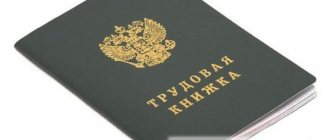To obtain guardianship, you need to obtain comprehensive information on all formalities and upcoming responsibilities:
- who can become a guardian;
- what rights does this give?
- what package of documents is needed to obtain the status.
If a relative or simply a close person wants to formalize responsibility and take on the care of an old person, you need to obtain the right to legally represent all the interests of the person who needs such care. To do this, you will need to submit a statement of intent and a complete set of documents to government agencies that oversee the guardianship sector. There are practically no difficulties if you know in advance what to prepare for.
Guardianship, trusteeship and patronage - what is the difference?
Guardianship, trusteeship, patronage, and for citizens over 80 years of age, care
all these institutions were created to ensure that the interests and rights of older people are not violated, to provide them with an appropriate standard of living, to preserve and manage their property.
The difference between these concepts lies in the condition of the elderly person who receives government support:
- if he is incapacitated, then guardianship is determined for him. Guardians are considered the legal representatives of the elderly person and carry out various transactions on his behalf; if he has limited legal capacity, guardianship is established;
- if capable - patronage. An assistant is assigned to such a person.
To understand which type of care is suitable, we will explain the degrees of legal capacity:
- A person who is unable to direct his actions and does not understand what he is doing is recognized as incompetent;
- A citizen who understands and controls his behavior, actions, and actions is recognized as having limited legal capacity only using the help of other people. This includes not only alcoholics and drug addicts, but also people with mental disorders, including those associated with old age. An elderly person with limited legal capacity cannot perform certain actions independently, for example, open a deposit in a bank and perform various actions with it. He must obtain written permission from the trustee to do this. He is also not allowed to use the payments that are allocated for his maintenance. For example, a social pension, child support. But if he has additional income, he can dispose of it without the consent of the trustee. Also, without his consent, he can purchase clothes, household items, and receive gifts;
- A competent senior citizen is a person without mental disabilities who controls his actions and can manage his behavior and is able to enter into transactions. The official decision on legal capacity or incapacity is made by the court.
Description of Important Terms
The consent of the person under guardianship is mandatory when resolving this issue. This consent becomes one of the mandatory conditions when it comes to patronage. But full guardianship frees you from the need to perform this action.
This is possible if the ward has ceased to be aware of his actions and does not understand their essence. As soon as the corresponding decision is formalized in court, you can go to the guardianship authorities to obtain the relevant documents.
Then the citizen takes upon himself the responsibility to carry out all actions aimed at protecting the pensioner and representing his interests. In favor of the ward, he can also manage funds when the need arises. Other responsibilities include paying for utilities, purchasing clothing, medications, and food.
The guardian draws up a special report, which describes in detail all the calculations made. Every year such a report is sent to the guardianship and trusteeship authorities.
There is also a type of guardianship called patronage. This is also a type of additional assistance for those who themselves have lost their legal capacity. The Civil Code in this case regulates all the rights and obligations of the parties to the agreement.
The role of a guardian cannot be transferred to a representative of the social security authorities. This action is only possible for relatives and third parties. Disabled people can also apply for patronage if their condition is not associated with mental disorders.
Who can become a guardian or trustee for an elderly person?
Guardianship authorities appoint a guardian or trustee. They are given 1 month to do this, from the time these authorities learned about the need to appoint guardianship over an elderly person. Requirements for guardians:
- age from 18 years;
- capable;
- not previously removed from guardianship;
- without a criminal record.
The physical health and capabilities of the caregiver are also taken into account. He should not suffer from tuberculosis, have malignant tumors, mental disorders, be a drug addict, alcoholic, or a disabled person of group 1. The elder person's approval for the appointment of a guardian is required.
Any citizen who meets the above requirements can become a guardian. But close relatives (children, grandchildren, spouse, brothers and sisters) have the right to become one first.
Action steps
Find out the address of the nearest guardianship authority to contact there. The application is submitted by the potential guardian himself; the presence of the ward is desirable.
What information is needed:
- identification documents of both parties;
- certificates from the Ministry of Internal Affairs confirming no criminal record;
- medical reports;
- documents on the ward’s property to assess initial wealth;
- medical examination of the ward to assess the current health status;
- a judicial finding of incapacity (if the potential ward has such status).
The guardianship authorities check all submitted information before making a decision.
Upon consent, third parties may be involved to manage the property, for example, but with the permission of the guardianship authorities.
How much do guardians get paid?
Guardians receive nothing for their activities. That is, it is considered free of charge. But in some cases, if it is in the interests of an elderly person, the guardianship and trusteeship authorities (GCA) have the right to enter into an agreement with the guardian (trustee), which will spell out the paid conditions of guardianship.
Remuneration to the guardian can be paid from 3 sources:
- Income from the property of an elderly person if he owns property from which he can receive income. Moreover, according to the Decree of the Government of the Russian Federation of November 17, 2010 No. 927, the maximum amount of remuneration should not be more than 5% of the income from the property of the ward;
- Funds from third parties For example, relatives may stipulate in the contract that they are willing to pay a certain amount for the activities of the guardian. But at the same time, they have the right to stipulate the requirements for the duties of a guardian;
- Budgetary funds Each region has developed its own laws establishing the amounts due to guardians. For example, according to the Federal Law of the Moscow Region dated October 31, 2008 No. 162/2008 - OZ, guardians are paid 3,000 rubles per month. But this is provided that the guardians do not receive income from the property of the elderly person and he is not paid remuneration by third parties.
Before deciding on paid guardianship, guardianship authorities assess the financial situation of the guardian and whether he has a permanent source of income. If the guardian fulfills his or her duties responsibly, the PCO may allow him or her to use the elderly person's property free of charge, for example, to live in his apartment or use his car. At the same time, the agreement concluded between the guardian and the guardianship authorities, or rather in the additional annex to it, describes this property and the period for which it is provided to the guardian.
What you need to know about legal guardianship
- Study the Family and Civil Codes of the Russian Federation.
- Carefully study Articles 32 and 35 of the Civil Code - they describe in detail the term “guardianship” itself and reveal all the rights of the guardian.
- Federal Law No. 48 “On guardianship and trusteeship” in the version after 2008.
Initially, employees of the supervising authorities must make sure that the specified citizen really needs outside care, and cannot cope with everyday life and civic responsibilities on his own. Based on confirmation of this fact, no later than 30 days later, the citizen is assigned an official guardian.
The right to guardianship can only be obtained voluntarily. The presence of family ties does not oblige one to care for a citizen, just as the absence of family ties cannot be a reason for refusing guardianship. You should know that a citizen who has once been deprived of the right of guardianship or who has voluntarily renounced this right will not be able to return the same powers subsequently.
How is a guardian appointed?
The guardian is appointed by the guardianship authorities. But first, a decision is made on the legal capacity of the elderly person:
- An application is submitted to the court to declare the citizen incompetent. This can be done not only by his relatives, but also by public health organizations, clinics, and hospitals.
- The judge initiates a forensic psychiatric examination and, based on its results, makes a decision on the citizen’s legal capacity.
- Guardianship informs citizens, including through the media, that there is an opportunity to become a guardian of a given person and collects applications from those wishing to engage in this activity.
- Citizens who wish to take up guardianship write a corresponding application and provide a package of documents.
- After receiving the documents, the PPP checks the living conditions of the future guardian and records the results of the check in a report, which is drawn up in 2 copies, one is given to the guardian, and the other is kept.
- The OPP makes a decision on the appointment or refusal of the citizen who has written an application for guardianship. 15 days are allocated for this from the date of receipt of the documents and the act. From the moment such a decision is made, the rights and obligations of the guardian arise.
If it is assumed that guardianship will be paid, then an agreement is concluded with the guardian within 10 days after the decision is made. Moreover, he must personally be present at this procedure; representatives are not allowed to attend. From the moment such an agreement is concluded, the guardian has the right to remuneration.
It is important to highlight this point: the right to remuneration arises from the moment the agreement on paid guardianship is concluded, and the rights and obligations of the guardian - from the moment the decision to appoint a guardian is made.
What is needed to obtain guardianship for a person over 80 years of age?
A statement of intent with the established package of documents is submitted to the guardianship authorities. The application must describe the current situation, why care is needed and other relevant facts.
A specially created commission is convened, whose tasks include considering the living conditions of the elderly person, his situation, and a conversation is held with the potential ward. An interview is also conducted with the prospective guardian to assess personal characteristics and the absence of direct reasons for refusal.
All information provided will be verified. Upon completion of the inspections, a positive or negative conclusion is issued. The decision made by the guardianship authorities can be legally challenged in court.
Documents required to register guardianship of an elderly person
Relatives and those who are not related to the senior citizen submit different documents. Non-relatives usually need to bring more documents, but a common requirement is an application.
| Not related | Relatives |
| Passport | Passport |
| Statement | Statement |
| Medical certificate (valid for 3 months) | Medical certificate (valid for 3 months) |
| Copy of marriage certificate | Copy of marriage certificate |
| Written consent of adult family members, taking into account the opinion of children who have reached the age of 10, living together with a citizen who has expressed a desire to become a guardian, for the cohabitation of an adult ward with a guardian (if the guardian decides on the cohabitation of an adult ward with the guardian’s family); | Documents confirming relationship with the ward |
| Document confirming completion of training to become a guardian | |
| Certificate from work. It must indicate the position and salary for the last 12 months. Valid for a year. If guardianship is issued by a pensioner, then a copy of the pension certificate is needed | |
| Autobiography |
After the documents are submitted, within 7 days, PLO employees will come to the house of the future guardian and examine his living conditions.
What should a guardian or trustee do?
Article 36 of the Civil Code of the Russian Federation specifies the duties of a guardian and trustee:
- notify the PCO about a change of residence of an elderly person;
- take care of its maintenance, care and treatment;
- protect his rights and interests, for example, submit an application for payment of benefits, pensions due to an elderly person, or lawsuits to collect alimony from citizens who are legally obligated to support him;
- protect the property rights of the ward, housing rights, for example, if the property of an elderly person is illegally owned by another person, the guardian can sue him. Also, the guardian can submit a statement to various organizations, government agencies, authorities, and other citizens if the rights of an elderly person are violated;
- go to a clinic or hospital to receive medical care.
It is also the responsibility of the guardian to file a petition with the court to remove guardianship or trusteeship if the citizen has recovered from a mental illness. But such a duty can be considered in relation to an elderly person as conditional, since mental pathologies in old age.
The person who has the guardianship is responsible before the law if the elderly person or their property is harmed. He is also responsible for transactions that he enters into on behalf of his wards.
Video assistant for those wishing to provide care
Do you want to take care of a loved one or loved one, and do it legally? In the video you will learn in detail about how guardianship is carried out, what types of guardianship exist and what you need to do to become a guardian.
In order to carry out guardianship, you need not only to fill out the documents correctly, prepare the legal side of the issue and resolve all the paperwork quickly. It is important to understand that you are taking care of a person who needs outside help and is now practically an “adult child.”
Guardian and ward's property
Most of the elderly person’s income is in the hands of the guardian: pension, alimony, income from property (for example, from a rented apartment). But he does not have ownership rights to this income; he can spend all this money only on the maintenance of his ward. He also does not have the right to use the property of an elderly person for his own interests. Only if the guardian has previously entered into an agreement on paid guardianship with the PLO.
The money that the state allocates for the maintenance of an elderly citizen is transferred to a specially opened nominal account. In particular, the following payments are transferred to it:
- alimony;
- pension;
- benefits;
- compensation in connection with the death of the breadwinner.
The guardian and trustee may spend these funds on the elderly person without prior notice to the PSO. But must annually submit a report on the amounts spent. More details about the report in the next section.
The guardian's property is transferred to the guardian according to the inventory within 3 days from the moment he began to perform his duties. The inventory is compiled by the OOP in 2 copies in the presence of all interested parties. The guardian receives one copy, the second is filed in the elderly person’s file, which is stored in the OOP.
The guardian is obliged to treat the transferred property with care, to prevent damage to it and should not derive income from it. That is, he cannot rent out an apartment or other property of an elderly person for his own benefit. Only in the interests of the person under guardianship.
Rights
The guardian must understand that after signing an agreement with his ward and the entry into force of the act of the guardianship authorities, he becomes an assistant in all matters for his guardian. From this moment on, he has the right:
- manage the pension and property of the ward, but only in his interests;
- apply for a cash benefit from the Social Insurance Fund if he is caring for a person whose age exceeds 80 years, and also if the guardian himself does not receive a pension;
- he can count on compensation for the expenses that were spent on caring for the elderly person from his pocket.
If a guardian cares for not one elderly person, but several, whose age is more than 80 years old, then the guardian is paid several benefits for each of his wards.
The guardian has the right to dispose of the property and funds of the ward only with the written consent of the guardianship authorities. If he receives a refusal to take any actions regarding the property of his ward, but still carries them out, he may be removed from guardianship by guardianship officials.
Guardian report
Every year, before February 1, the guardian or trustee is required to report to the OPP on the state of the elderly person’s property over the past year. There is a special report form for this.
In this report, the guardian states:
- what condition the property is in;
- where is it stored;
- whether new property was acquired instead of the previous one;
- what income is received from the property;
- expenses from a nominal account.
Payment documents must be attached to this report: checks, tax receipts and others. Expenses for small household needs, food, and basic necessities do not need to be confirmed.
The OOP studies the report and adjusts the inventory of property: it excludes from it items that are damaged or adds those acquired during the reporting period.
Can a guardian make transactions regarding the property of an elderly person?
Maybe if the PLO gets permission to do so. After receiving it, he will be able to:
- exchange or give property of an elderly person;
- rent it out;
- pledge it;
- hand over for free use;
- extract shares from it.
If such permission is not obtained, the guardian may be brought not only to administrative, but also to criminal liability. In addition, if it is discovered that the property is damaged or was used for other purposes, or actions were carried out with it as a result of which it lost its value, then the OOP must present a claim to the guardian for compensation for losses.
Important!
The property of an elderly ward can be transferred to third parties for use for a period of no more than 5 years. However, if the guardian proves to the OOP that such a transfer promises special benefits to the ward, then the period may be more than 5 years. In any case, all these actions must be carried out with the permission of the PLO.
Ward's property
Above, we examined the provisions of Article 37 of the Civil Code of the Russian Federation in relation to the property of a ward citizen as a whole, without dividing it by type. But in Art. 19 Federal Law No. 48 of April 24, 2008 provides for the specifics of handling the real estate of the ward of the guardian. In particular, this article states that alienation of the immovable property of a ward is possible only in certain situations:
- if the property is recovered by a court decision;
- if the property is foreclosed on for non-payment of mortgage debt;
- if the property is transferred under a rental agreement. Moreover, it must be concluded for the benefit of the ward citizen;
- if the property is exchanged for another. Moreover, again, the exchange must provide some benefit to the ward;
- the residential premises are being sold because the ward changes his place of residence;
- the property is sold in order to pay for the expensive treatment of the ward.
Let us repeat once again that these transactions are possible only with the permission of the PLO, which must be obtained in advance. If it is discovered that the above-described actions were carried out with the residential premises without the permission of the Public Organization, then this institution is obliged to immediately go to court on behalf of the ward and demand termination of the contract. In this case, all property must be returned to the ward, and the guardian must compensate for the damage.
Registration of patronage
Patronage responsibility is also regulated by relevant norms and acts of the Russian Federation.
In these relationships, the ward is a person with legal capacity, and the guardian acts as a responsible assistant in solving everyday and life issues. The parties themselves determine the level of relationship and powers of the patronage guardian: they can enter into any agreement - from a guarantee to a trusted representation of the interests of the ward.
The Senior Citizen's Assistant performs the following tasks:
- household or social errands for an elderly person under his care (paying bills, helping around the house, buying groceries, medicines);
- constant notification to the guarantor that his tasks have been completed;
- management of the ward's real estate with obtaining benefits for him (leasing with control of the solvency of residents).
This is a sample relationship plan. A complete set of rules is regulated by the concluded agreement, which clearly states what exactly the guarantor expects from the guardian. This is important when interacting with older people, as they sometimes forget what they were assigned and may expect more. An accurate indication of the amount and types of assistance will allow you to create a plan of action for the guardian and mutually monitor its implementation by both parties.









